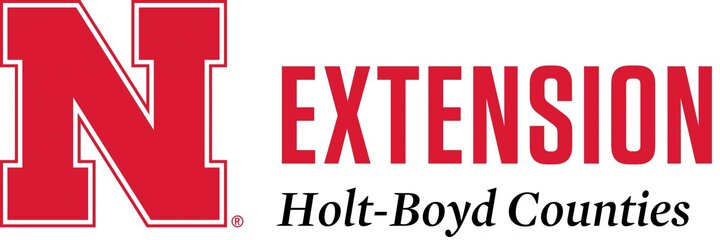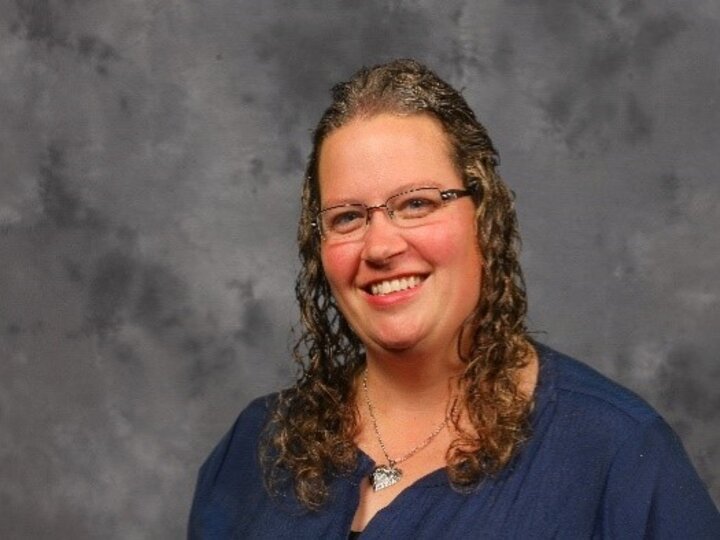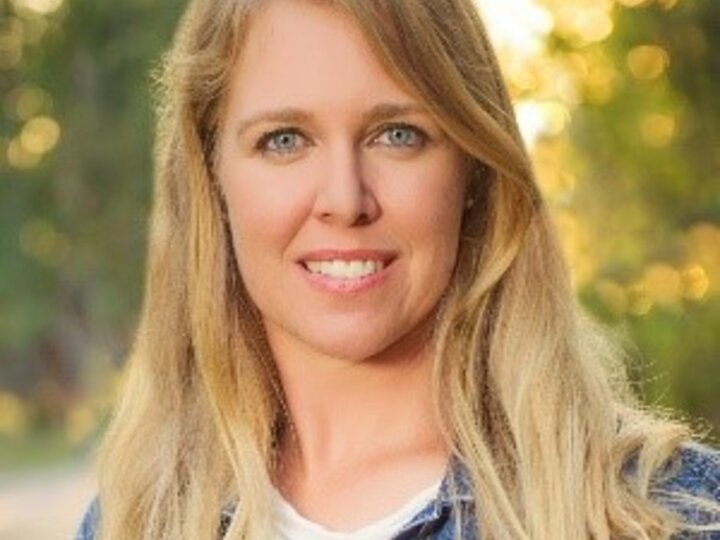
Nebraska Extension Educator - Holt/Boyd Counties - LaDonna Werth
Nebraska Extension Educator - Holt/Boyd Counties - Amy Timmerman
Nebraska Extension Educator - Brown/Rock/Keya Paha Counties - Brittany Spieker
Nebraska Extension Educator - Holt/Boyd/Garfield/Loup/Wheeler Counties - Bethany Johnston
Nebraska 4-H Assistant - Holt/Boyd Counties - Debra Walnofer
March 18: Face-to-Face Private Pesticide Training, 9:30am, Holt County Courthouse Annex, O’Neill, NE, pested.unl.edu
March 18: Chemigation Training, 1:30am, Holt County Courthouse Annex, O’Neill, NE, pested.unl.edu
March 20: Land Application (Manure) Training, 10am-5pm, Mid-Plains Community College, Valentine, NE,https://water.unl.edu/lat/
March 20: Face-to-Face Private Pesticide Training, 1:30pm, Bassett City Building, Bassett, NE, pested.unl.edu
March 27: Face-to-Face Private Pesticide Training, 1:30pm, Our Savior’s Lutheran Church, Spencer, NE, pested.unl.edu
March 27: Face-to-Face Private Pesticide Training, 1pm-4pm, Walter Larsen Senior Center, Creighton, NE, pested.unl.edu
March 27: Face-to-Face Private Pesticide Training, 6pm-9pm, Walter Larsen Senior Center, Creighton, NE, pested.unl.edu
April 1: DUE: Holt County 4-H and FFA Market Beef and 2nd Year Bucket Calf ID Sheets, Holt County Extension Office, O’Neill, NE
April 8: Face-to-Face Initial Commercial/Noncommercial Pesticide Training, 8:30am-5pm, Holt County Annex, O’Neill, NE, pested.unl.edu
April 9: Private Pesticide Training, 1:30pm, Holt County Annex, O’Neill, NE, pested.unl.edu
April 11: Chemigation Training, 9:30am, Holt County Annex, O’Neill, NE
April 12-13: 4-H Shooting Sports Leader Certification Workshop, Bassett, Early bird registration (lower price in training) is April 2 https://events.unl.edu/NE4H-Shooting-Sports/
April 12: 4-H Shooting Sports Leader Update Workshop, Bassett, Early bird registration (lower price in training) is April 2 https://events.unl.edu/NE4H-Shooting-Sports/
April 16-17: Nebraska State 4-H BB Gun and Air Rifle Championships, Christensen Field 1914 Christensen Field Rd, Fremont, NE, https://events.unl.edu/NE4H-Shooting-Sports/2025/03/15/
April 26-27: 4-H Shooting Sports Leader Certification Workshop, Hastings, Early bird registration (lower price in training) is April 16 https://events.unl.edu/NE4H-Shooting-Sports/
April 26: 4-H Shooting Sports Leader Update Workshop, Hastings, Early bird registration (lower price in training) is April 16 https://events.unl.edu/NE4H-Shooting-Sports/
April 16-17: Nebraska State 4-H BB Gun and Air Rifle Championships, Christensen Field 1914 Christensen Field Rd, Fremont, NE, https://events.unl.edu/NE4H-Shooting-Sports/2025/03/15/
How Volunteerism Enhances Leadership Skills in Youth
Volunteerism plays a vital role in developing leadership skills among youth. By engaging in community service and programs like 4-H, young individuals gain hands-on experience that nurtures qualities such as responsibility, communication, and problem-solving - essential traits for effective leadership.
Through volunteer work, youth learn the importance of responsibility and accountability. Whether organizing events or managing a project, they develop strong time management skills and learn how to make decisions that impact their team. In 4-H, for instance, youth set goals, complete projects, and present their work, helping them understand the significance of deadlines and follow-through. Research indicates that youth in 4-H develop strong goal-setting skills that positively influence leadership success (National 4-H Council, 2023).
Communication and teamwork are also essential leadership skills that youth strengthen through volunteering. In programs like 4-H, young individuals work together on projects, engage in group discussions, and practice public speaking. These collaborative experiences build interpersonal skills and the ability to share ideas clearly. According to the National 4-H Council, youth who participate in leadership programs improve both communication and teamwork, and critical skills for effective leadership (National 4-H Council, 2023).
LaDonna Werth
Extension Educator
Phone: 402-336-2760
E-mail: LWerth2@unl.edu

Volunteer roles often involve problem-solving and adaptability, further developing leadership skills. Youth in 4-H, for example, work on agricultural and community-focused projects that require quick thinking and creative solutions. These experiences prepare young people for future leadership roles, where they may face unexpected challenges. Studies show that problem-solving and adaptability are key components of leadership that can be enhanced through volunteerism (Eccles & Gootman, 2002).
Volunteerism also fosters empathy and emotional intelligence. By working with people from diverse backgrounds, youth gain a deeper understanding of others’ needs and perspectives. In 4-H, community service projects help youth develop emotional intelligence and compassion—critical qualities for compassionate leadership (Berkowitz & Bier, 2005).
Finally, participating in volunteer work offers youth the chance to take on leadership roles themselves. Whether leading a team or coordinating a project, these experiences build confidence and prepare youth to take on leadership positions in the future. Studies show that youth involved in leadership roles in programs like 4-H are better prepared for leadership positions later in life (Zeldin et al., 2005).
Volunteerism, especially through programs like 4-H, equips youth with the skills needed to become strong, responsible leaders, helping them thrive both now and in the future.
References:
- American Psychological Association. (2019). "Time management and academic success: Why it matters." APA.org. https://www.apa.org
- Berkowitz, M. W., & Bier, M. C. (2005). "Research-based character education." The Annals of the American Academy of Political and Social Science, 591(1), 72-85.
- Eccles, J. S., & Gootman, J. A. (2002). Community programs to promote youth development. National Academy Press.
- National 4-H Council. (2023). "The impact of 4-H on youth leadership development." 4-H.org. https://www.4-h.org
- Zeldin, S., McDaniel, H., Topitzes, D., & Calvert, M. (2005). "Youth leadership in community-based organizations." The Journal of Youth and Adolescence, 34(5), 207-221.
Source: Makayla Livingston - Nebraska Extension Furnas County Extension Assistant (UNL For Families – March 17, 2025)
Controlling Winter Annual Weeds
Now is the time to control winter annual weeds in alfalfa. Thin field stands combined with open soil surfaces and adequate moisture can result in high weed pressure. So, prior to alfalfa shoot green-up or dormancy break scout fields for early green winter annual weed patches of pennycress, downy brome, mustards, cheatgrass and shepherd’s purse. Left unchecked, these weeds can lower first cutting hay yield, quality and palatability. Also, excessive weeds can extend dry-down and lengthen harvest time.
However, before applying any herbicide, scout to determine current and potential weed pressure. Verify that fields have enough weeds to justify herbicide spray applications and then determine the best management options.
Winter annual weeds can grow during cooler spring temperatures better than alfalfa, so dormant alfalfa herbicides such as MCPA Amine, metribuzin (Sencor®), and Gramoxone® can still be applied. Pre-emergent herbicides such as Warrant®, Chateau® and Prowl H2O® can be applied soon after green-up, but these chemicals will not control weeds which have already germinated. Aim® herbicide will control early growing broadleaf weeds but not control grassy weeds.
Poast® herbicide will control most growing weedy grasses but not downy brome. Pursuit® and Raptor® herbicides control growing henbit well during early alfalfa green-up, but control weeds best when air temperatures are warmer. Glyphosate products like Roundup Weathermax®/Powermax® will control growing weeds with warmer temperatures too but must be used with Roundup-Tolerant varieties.
Amy Timmerman
Extension Educator
Phone: 402-336-2760
E-mail: atimmerman2@unl.edu

Other products for new alfalfa fields include Arrow®, Select Max®, Velpar, Karmex®, Sinbar®, Pursuit, Butyrac® and Raptor®. Our UNL Extension publication EC 130, Guide for Weed, Disease, and Insect Management in Nebraska, may provide additional information, or view more on alfalfa research on CropWatch.
Winter annuals can quickly establish in hay fields, so early season weed control is important for quality hay production. Timing is essential, so control winter annuals before alfalfa breaks dormancy and before weeds render economic losses.
Source: Todd Whitney – University of Nebraska-Lincoln Extension Educator (CropWatch – March 13, 2025)
Consider Securing Feed Supplies Now for Dry Conditions in 2025
Dry conditions have persisted across much of the state throughout the winter. While there is still time to get significant precipitation this spring, many locations will need above average moisture between now and grass turnout to get back to a long-term average. Even with good spring moisture, range and pastures would benefit from delayed turnout to give stressed grasses an opportunity to grow and develop root reserves prior to grazing.
Currently, hay, distillers grains, and corn are readily available across much of Nebraska at prices that are below the average of what they have been for the last three to four years. With cattle prices being quite strong, there is a desire by many cow-calf producers to hold on to the cowherd to capitalize on the predicted strong calf and feeder cattle prices that are expected to occur over the next few years.
With these circumstances in place, it is important now to review or develop a drought plan for the upcoming growing season for those who desire to retain the cowherd.
Key things to consider:
- Inventory feed amounts and quality on hand. Identify what will be needed for feed to delay grass turnout or to dry lot cows into the summer if adequate precipitation doesn’t occur.
Bethany Johnston
Extension Educator
Phone: 402-336-2760
E-mail: bjohnston3@unl.edu

- Review options for an extended period of feeding the cowherd and the logistics and costs of doing that.
- Choose a sacrifice area to feed cows/pairs on later in the spring and into the summer to keep cows off drought-stressed pastures.
- Consider purchasing or securing a portion of needed feed supplies now, when these feeds are readily available.
- Evaluate the options of planting annual forages this spring on dryland or irrigated acres as a source of grazing or harvested feed.
- Identify cows that should be the first to leave if feed is short, to reduce feed needs.
- Plan for early weaning (and the feeding of calves off the ranch) to reduce forage demands on pastures.
Should drought conditions persist, those who consider options early and are prepared to act will be in the best position to utilize the opportunities available. Nebraska Extension has Specialists and Educators who can help evaluate options and develop rations utilizing available feed resources. Planning and acting now will provide the best chance to make the most of a difficult situation.
Source: Aaron Berger – University of Nebraska-Lincoln Livestock Systems Educator (BeefWatch – March 1, 2025)
News Release
4-H Shooting Sports Instructor Workshops
Do you enjoy hunting? Do you have an interest in helping the youth of our county get involved in hunting and archery? Adult volunteers help to teach youth marksmanship, the safe and responsible use of firearms, and the principles of hunting and archery.
The Holt and Boyd 4-H Shooting Sports programs are looking for more adult volunteers. The 2-day Leader Certification Workshop Training is being offered in Bassett on April 12-13. You can get certified in one of the following disciplines: rifle (includes BB, air, & .22), pistol (air &.22), archery, shotgun, and coordinator.
If April12-13 isn’t open on your calendar, maybe the April 26-27 training at Hastings is. At this training you can get certified in rifle (includes BB, air, & .22), pistol (air &.22), archery, shotgun, muzzleloading, coordinator, and ambassador.
Participants at the training will spend time both in the classroom and at their respective range during the workshop. Volunteers do not need to have a family member enrolled in 4-H to serve as a 4-H volunteer.
Are you ready to help youth with skills that they can enjoy for the rest of their life. Register today at https://events.unl.edu/NE4H-Shooting-Sports/
April 12-13 Bassett - Leader Certification Workshop early bird registration (lower price in training) is April 2.
April 26-26 Hastings - Leader Certification Workshop early bird registration (lower price in training) is April 16.
Boyd County 4-H Council will reimburse you for completing the training and if you enroll in 4-H as a Boyd County 4-H Shooting Sports Volunteer.
Current Certified Leader and Apprentice Leaders - UPDATE
Leader updates are offered throughout the year. These are intended only for adult or apprentice 4-H volunteers who have previously attended a Leader Certification Workshop. These are an update training for existing certified leaders only, not for new or prospective leaders. Attendees must be currently enrolled Nebraska 4-H Shooting Sports volunteer leaders in their county and in good standing.
April 12: Bassett - Leader Update Workshop, Early bird registration (lower price in training) is April 2.
April 26: Hastings - Leader Update Workshop, Hastings, Early bird registration (lower price in training) is April 16.